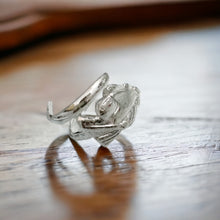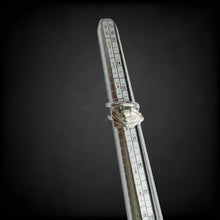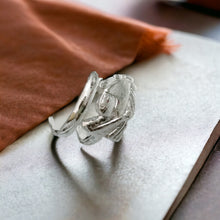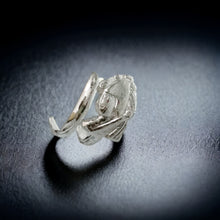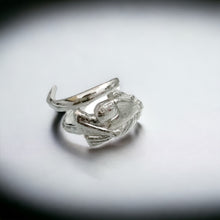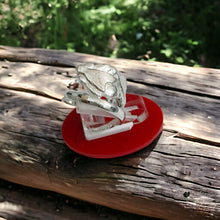
The Silver God Osiris Adjustable Ring embodies ancient Egyptian heritage, featuring intricate engravings of the revered deity Osiris. Crafted with sterling silver, it pays homage to the god of the afterlife and resurrection, echoing millennia of Egyptian culture in a modern adjustable design.
History Side For Those Who Are Interested
Osiris, a prominent figure in ancient Egyptian mythology, was revered as the god of the afterlife, death, and resurrection. His origins can be traced back to the earliest periods of Egyptian civilization, with his worship evolving over millennia.
The mythological narrative of Osiris revolves around his role as a benevolent king who brought civilization, agriculture, and law to the ancient Egyptians. According to myth, Osiris ruled over the land of Egypt alongside his wife and sister, Isis. His reign was characterized by prosperity and harmony among the people.
However, Osiris's brother, Set, harbored jealousy and resentment towards him. Set, the god of chaos and violence, plotted against Osiris, seeking to usurp his throne. Set's treachery culminated in a deceitful act where he tricked Osiris into entering a coffin, which he then sealed and cast into the Nile River.
Isis, devastated by the loss of her husband, embarked on a quest to recover Osiris's body. Through her cunning and magical prowess, she located the coffin and retrieved Osiris's remains. With the help of other deities such as Anubis and Thoth, Isis was able to resurrect Osiris temporarily, during which they conceived their son, Horus.
Despite his resurrection, Osiris could not return to the realm of the living permanently. Instead, he assumed a new role as the ruler of the underworld, where he presided over the judgment of souls and the afterlife. Osiris became a symbol of hope for the ancient Egyptians, representing the promise of life after death and the possibility of renewal and regeneration.
The cult of Osiris grew in prominence throughout Egyptian history, becoming one of the most widespread and enduring religious beliefs in the civilization. His worship was central to funerary rituals and ceremonies, as Egyptians believed that by invoking Osiris's name, they could secure a favorable outcome in the afterlife.
The mythology of Osiris also played a significant role in shaping Egyptian cosmology and religious beliefs. The annual flooding of the Nile River, which brought fertility to the land, was often associated with Osiris's death and resurrection, symbolizing the cycle of life, death, and rebirth.
Over time, Osiris became intertwined with other deities and religious traditions, adapting to the changing cultural landscape of Egypt. Despite the decline of ancient Egyptian civilization, the legacy of Osiris endured, leaving an indelible mark on the religious and cultural heritage of Egypt. Today, Osiris remains a revered figure in the study of ancient Egyptian religion and mythology, continuing to fascinate and inspire generations of scholars and enthusiasts alike.








